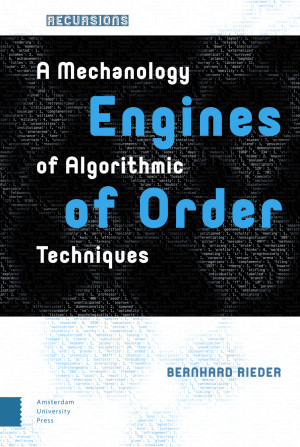Software has become a key component of contemporary life and algorithms that rank, classify, or recommend are everywhere. Building on the philosophy of Gilbert Simondon and the cultural techniques tradition, this book examines the constructive and cumulative character of software and retraces the historical trajectories of a series of algorithmic techniques that have become the building blocks for contemporary practices of ordering. Developed in opposition to centuries of library tradition, these techniques instantiate dynamic, perspectivist, and interested forms of knowing. Embedded in technical infrastructures and economic logics, they have become engines of order that transform how we arrange information, ideas, and people.

